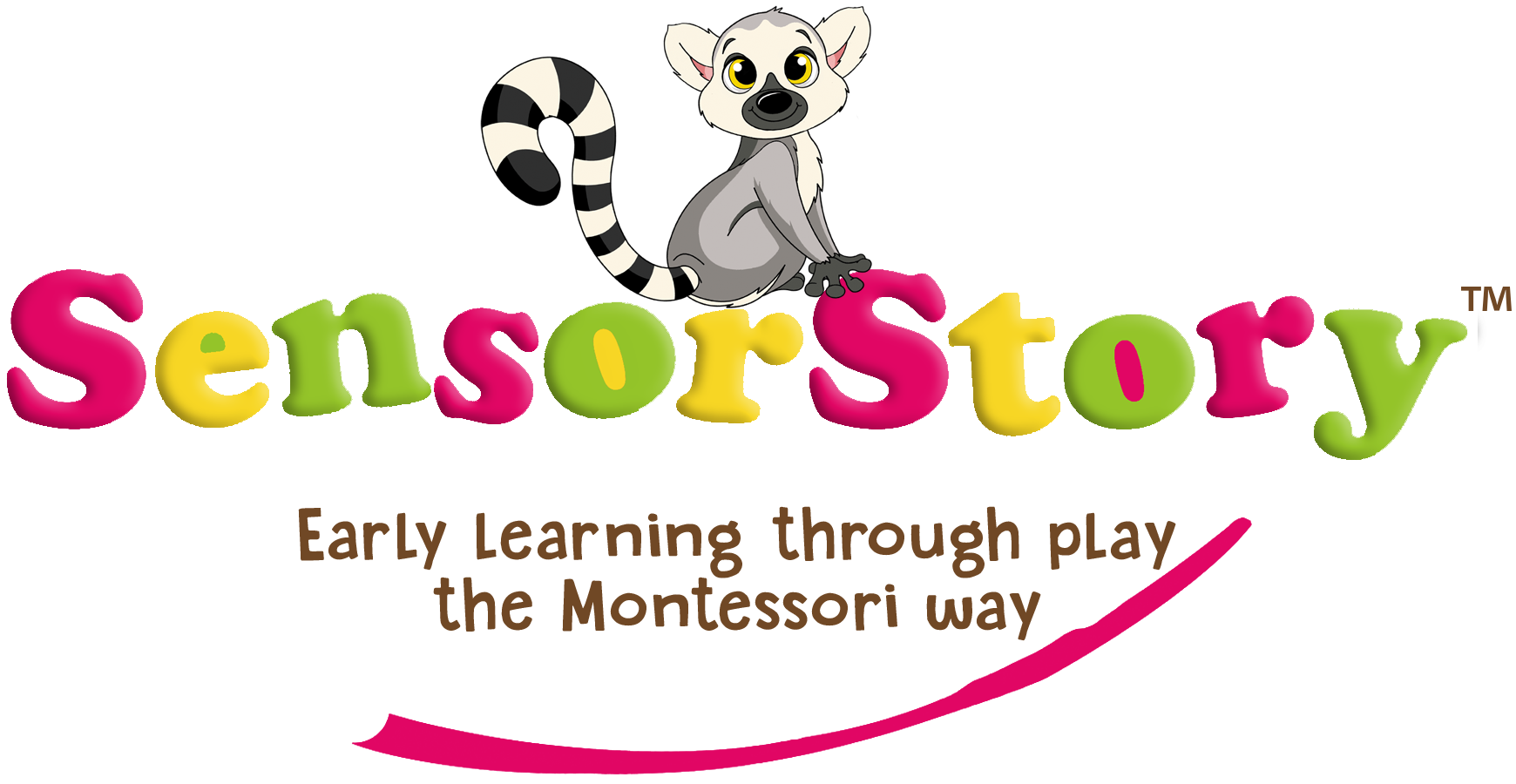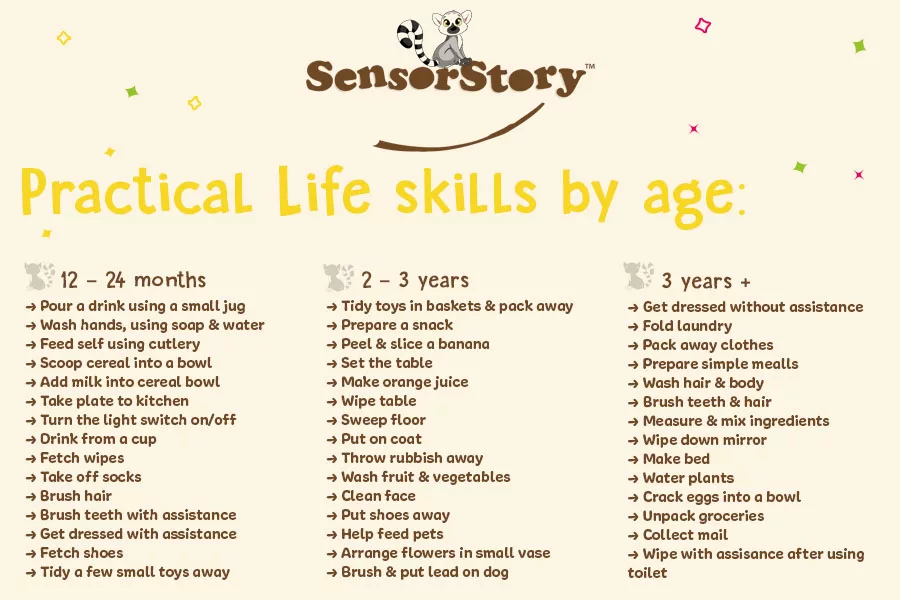Your little one is curious about investigating & experiencing everything, & passionate about learning & exploring. Maria Montessori observed that young children were naturally drawn to everyday objects & activities vs. toys. She saw that children wanted to contribute & have responsibility. Montessori theory suggests involving your little one in everyday household chores, which is a great way to nurture this interest & support their development, developing what is known in Montessori theory as Practical Life skills.
When your little one is encouraged to do what their caregiver is doing, they begin storing useful information in their brain & are able to link it to broader concepts, which in turn helps them to think in more advanced ways.
Practical Life skills are simply practicing activities of daily life. There are four main categories:
❶ care of self,
❷ care of environment,
❸ grace and courtesy,
❹ control of movement.
This could look like asking them to pass you a cloth because there is a spill & letting your baby take a turn in wiping, helping you sweep with a child-sized sweeper, carrying a toy or basket, helping with laundry by taking items out of the machine, pouring the milk in a bowl for breakfast cereal, adding a pre-measured bowl of flour to a baking recipe, helping to make dinner by washing a vegetable (or offering spoons & other safe kitchen tools for them to investigate, & bang!), laying the table together, watering plants together with a child-sized watering can or a small cup, arranging flowers, planting seeds, caring for a pet, self-care such as brushing their hair or washing their hands, getting ready for visitors, supermarket trips, walking on the line, the silence game, introducing oneself & so on. Actively narrating each step & encouraging their participation makes them feel capable & useful, builds self-confidence & motor skills as well as giving them a huge sense of satisfaction & accomplishment, all while offering them the opportunity to fulfil their deep-rooted desire to contribute & have responsibility.
Example practical life activities:
Practical life activities introduce our little ones to the concept of education as an aid & a preparation for life, & they help them to develop a sense of order, concentration, independence & coordination. These skills form the foundation in order to master the Montessori materials across all areas of the Montessori Curriculum. Practical life activities really are at the core of the Montessori philosophy.
Tips for introducing new activities:
- Follow your little ones lead when they want to help, by following their current interests & going at their pace.
- “Teach by teaching, not by correcting” – show your little one how to complete the activity first, using minimal words. When they make a mistake we don’t correct them, we recognise that this is progress to build on & we can show them the correct way of doing something next time we try the same activity.
- If the activity requires items such as utensils, brooms, sponges etc, we provide child-sized items.
- Start small, one step at a time – most activities in daily life require multiple steps & multiple skills, most of which we grown-ups wouldn’t ordinarily even acknowledge as a ‘step’. For example, when thinking of teaching our little ones to begin using the toilet or potty, it’s easy to place focus on trying to accomplish teaching the step of actually eliminating while sat on a toilet, but did you know using the toilet actually requires mastering up to 40 steps! One for walking to the potty/toilet, one for getting undressed while seated or standing, one for climbing up the step, one for sitting, one for wiping, one for flushing, we also have multiple steps in getting dressed again, washing our hands & drying our hands, opening & closing the toilet seat lid & many more in between – as well as of course one for the actual elimination. See our article Montessori & toileting for more on this. When introducing any new activity we want to start small with one or two steps, & then over time begin to scaffold skills & steps by providing opportunities to extend on & repeat the activity.
Self-care:
- Choosing clothing from two options
- Get dressed
- Put on shoes
- Wash hands
- Blow nose
- Wash face
- Toileting
- Brush teeth
- Brush hair
Care for the environment
- Put used clothes in a hamper
- Make bed
- Tidy
- Sweep, mop, dust
- Wipe up spills
- Clean windows
- Recycle
- Help take out washing from washing machine
- Help unload the dishwasher
- Compost
- Plant seeds
- Water plants
Grace & Courtesy:
- Feed pets
- Pour pets clean water
- Brush pets
- Help younger siblings
- Practice polite manners
- Greet others
Control of movement:
- Bake together
- Make a snack
- Assist with meal preparation
- Pour own drink
- Wash dishes
[vc_widget_sidebar sidebar_id=”sidebar”]

